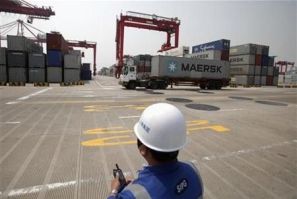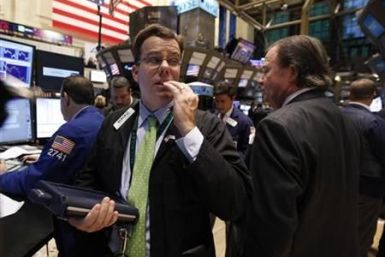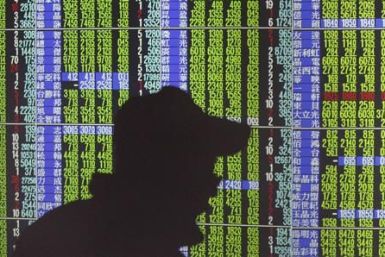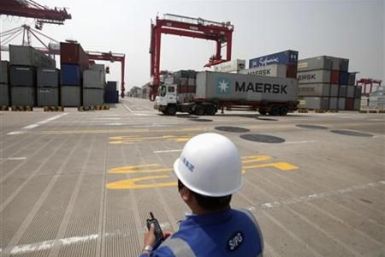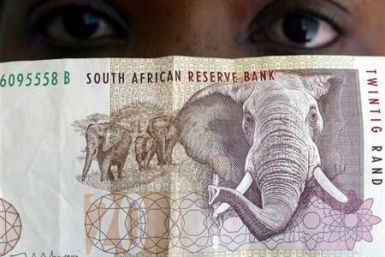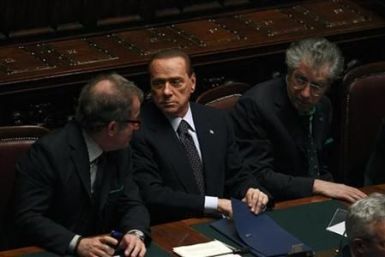The head of the International Monetary Fund called on Thursday for political clarity in efforts to tackle the debt crisis that has gripped Italy, saying uncertainty around who would succeed Prime Minister Silvio Berlusconi was fuelling market volatility.
Stock index futures pointed to a rebound on Wall Street on Thursday, with futures for the S&P 500 up 1.1 percent, Dow Jones futures up 0.9 percent and Nasdaq 100 futures up 1 percent at 4:47 a.m. ET.
Political and economic crisis in Italy spurred fears of a split in the Eurozone with borrowing costs for Europe's third biggest economy at unsustainable levels and the bloc unable to afford a bailout.
World stocks hit a three-week low and the euro tumbled across the board while top-rated government bonds rallied on Thursday as fears of a break-up of the euro zone gathered pace ahead of a key debt sale in Italy.
Asian stocks fell around 3 percent on Thursday after soaring Italian borrowing costs stoked fears that the debt crisis in the euro zone's third biggest economy will overwhelm its financial defenses, raising the risk of a break-up of the currency area.
Asian stocks fell sharply Thursday after soaring Italian borrowing costs stoked fears the debt crisis in the euro zone's third biggest economy will overwhelm its financial defenses, raising the risk of a break-up of the currency area.
China's exports in October rose at their weakest pace in eight months, underlining official concern about the sector that has dragged on economic growth this year while imports jumped much more than expected.
Gold prices slipped modestly Wednesday as stock investors in Europe and the U.S. dumped their holdings and abandoned the euro in a global stampede to safety.
South African assets fell on Wednesday when investors were spooked by a ratings outlook downgrade of the domestic economy, which added to market fears over the euro zone debt crisis.
Political manipulation of Congo's security forces has brought crackdowns on opposition parties and may lead to bloodshed in this month's election, the United Nations said in a report on Wednesday.
We have agreed on someone who will unite us, Papandreou reportedly said, without revealing his identity.
Global markets stampeded Wednesday after the bond market signaled that Europe's third-largest economy can no longer survive without a rescue.
Too bad Greece never had a Tea Party. If it had, it wouldn't be in the mess it's in now. It wouldn't have become the beggar of Europe, eking out a living on the kindness of strangers.
One message from financial markets has become quite clear: attempts by the euro zone to ring-fence Greece and stop contagion to other, more significant economies has failed.
Portugal, Ireland and Greece all were forced to accept a rescue package once their national bonds reached that emergency yield.
Germany's wise men panel of economic advisers warned the European Central Bank it risks losing credibility by buying the bonds of heavily-indebted euro zone states, and that monetary and fiscal policy are becoming worryingly blurred.
Negotiations between outgoing Prime Minister George Papandreou and opposition leaders, notably Antonis Samaras, have dragged on into the third day.
Germany's wise men panel of economic advisers warned the European Central Bank it risks losing credibility by buying the bonds of heavily-indebted euro zone states, and that monetary and fiscal policy are becoming worryingly blurred.
The Greek nation has had a vastly different history and trajectory from the dominant countries of Western Europe.
Italian borrowing costs reached breaking point on Wednesday after Prime Minister Silvio Berlusconi's promise to resign failed to raise optimism about the country's ability to deliver on long-promised economic reforms.
Italian borrowing costs reached the breaking point Wednesday after Prime Minister Silvio Berlusconi's promise to resign failed to raise optimism about the country's ability to deliver on long-promised economic reforms.
The French economy will stagnate in the last quarter of the year, the Bank of France said on Wednesday, the latest sign it is losing momentum as fiscal austerity and Europe's debt crisis depress private sector activity.








